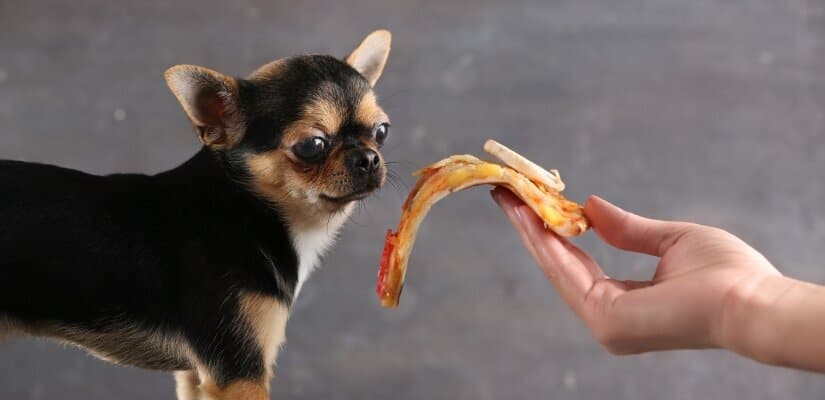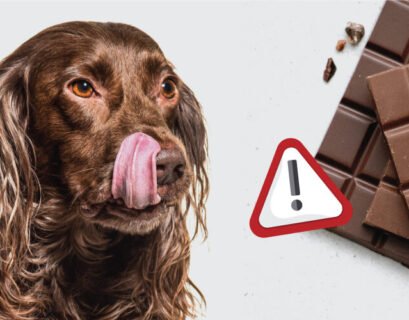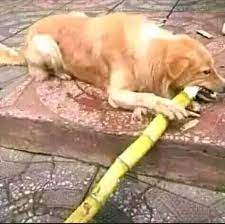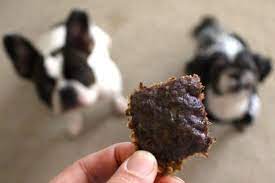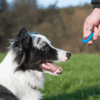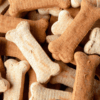Can Dogs Eat Vienna Sausage?
Vienna sausage is a type of canned meat that is popular in many countries. It is made from finely chopped pork, beef, chicken, or turkey, mixed with salt, spices, and preservatives, and stuffed into a thin casing. The sausages are then cooked and packed in a liquid, usually water, broth, or gelatin.
Many people enjoy eating Vienna sausage as a snack or a meal, but what about dogs? Can dogs eat Vienna sausage safely and healthily? In this article, we will explore the pros and cons of feeding Vienna sausage to dogs, and provide some tips and alternatives for dog owners.
Ingredients and Additives in Vienna Sausage
The first thing to consider when deciding whether to give Vienna sausage to dogs is the ingredients and additives that are used to make it. According to the USDA, the typical ingredients in Vienna sausage are:
- Mechanically separated chicken
- Water
- Salt
- Corn syrup
- Contains 2% or less of: beef, pork, dextrose, natural flavors, sodium nitrite, garlic powder
Some brands may also add other ingredients, such as onion powder, paprika, mustard, or cheese. The ingredients and additives may vary depending on the country of origin and the manufacturer.
Some of these ingredients and additives are not harmful to dogs in small amounts, but others can cause problems for dogs’ health. Here are some of the potential issues:
- Mechanically separated chicken: This is a process that separates the meat from the bones of chickens using high pressure. The resulting product is a paste-like substance that contains bone fragments, cartilage, blood vessels, and nerves. This can pose a choking hazard for dogs, as well as a risk of bacterial contamination and infection.
- Salt: Salt is added to Vienna sausage to enhance the flavor and preserve the shelf life. However, too much salt can cause dehydration, high blood pressure, kidney damage, and sodium poisoning in dogs. Symptoms of sodium poisoning include vomiting, diarrhea, seizures, coma, and death.
- Corn syrup: Corn syrup is a type of sugar that is added to Vienna sausage to improve the texture and taste. However, too much sugar can lead to obesity, diabetes, dental problems, and pancreatitis in dogs. Pancreatitis is a condition where the pancreas becomes inflamed and unable to produce enough digestive enzymes, causing abdominal pain, vomiting, diarrhea, and loss of appetite.
- Sodium nitrite: Sodium nitrite is a preservative that is added to Vienna sausage to prevent the growth of bacteria and give the meat a pink color. However, sodium nitrite can also form nitrosamines, which are carcinogenic compounds that can damage the DNA and cause cancer in dogs. Nitrosamines are more likely to form when the meat is cooked at high temperatures or exposed to acidic conditions.
Garlic powder: Garlic powder is a spice that is added to Vienna sausage to enhance the flavor. However, garlic is toxic to dogs, as it contains a compound called thiosulfate, which can damage the red blood cells and cause hemolytic anemia. Symptoms of hemolytic anemia include weakness, lethargy, pale gums, jaundice, and dark urine.
Benefits and Risks of Feeding Vienna Sausages to Dogs
Risks:
Regular consumption of Vienna sausages can pose several health risks for dogs, including:
- Digestive Upset:The high fat and sodium content in Vienna sausages can cause digestive problems such as vomiting, diarrhea, and pancreatitis.
- Allergic Reactions:Some dogs may develop allergic reactions to the ingredients in Vienna sausages, leading to skin irritation, itching, and other symptoms.
- Kidney and Heart Problems:Excessive sodium intake from Vienna sausages can strain the kidneys and contribute to high blood pressure, increasing the risk of heart disease.
Benefits:
- Occasional Treat:A small amount of Vienna sausage may be given as an occasional treat, but it should not be a regular part of the dog’s diet.
- Flavorful Addition:Vienna sausages can be used as a flavor enhancer in small quantities in homemade dog food.
- The possible benefit of feeding Vienna sausage to dogs is that it can provide some protein, which is essential for dogs’ growth, development, and maintenance
Therefore, it is not advisable to feed Vienna sausage to dogs, even as an occasional treat or a reward. There are many other healthier and safer options for dogs, such as fresh or cooked meat, eggs, cheese, fruits, and vegetables. However, these foods should also be given in moderation and according to the dog’s size, age, and dietary needs.
How Much and How Often Can Dogs Eat Vienna Sausage?
As mentioned above, it is not recommended to feed Vienna sausage to dogs, as it can cause serious health problems for them. However, if a dog accidentally eats a small amount of Vienna sausage, it is unlikely to cause any immediate harm, unless the dog has a pre-existing medical condition or an allergy to any of the ingredients.
If a dog eats a small amount of Vienna sausage, the owner should monitor the dog for any signs of distress, such as vomiting, diarrhea, excessive thirst, or lethargy. If these signs occur, the owner should contact a veterinarian as soon as possible and seek medical attention for the dog.
If a dog eats a large amount of Vienna sausage, or eats it frequently, the owner should also contact a veterinarian and seek medical attention for the dog, as this can lead to more serious health problems, such as sodium poisoning, pancreatitis, cancer, or hemolytic anemia. The veterinarian may perform blood tests, urine tests, x-rays, or ultrasounds to diagnose the condition and prescribe the appropriate treatment.
The treatment may vary depending on the severity and type of the problem, but it may include fluid therapy, medication, surgery, or dietary changes. The owner should follow the veterinarian’s instructions and advice, and provide the dog with plenty of water, rest, and care.
Factors to Consider When Feeding Vienna Sausages to Dogs
If you decide to give your dog Vienna sausages as a rare treat, consider the following factors:
Your Dog’s Age and Health: Puppies and senior dogs may be more susceptible to the negative effects of Vienna sausages due to their delicate digestive systems.
Your Dog’s Activity Level: Highly active dogs may require more calories than less active dogs, making Vienna sausages a more acceptable occasional treat.
Your Dog’s Overall Diet: Ensure Vienna sausages only account for a small portion of your dog’s overall diet to avoid nutritional imbalances.
Feeding Recommendations
It is generally recommended to avoid feeding Vienna sausages to dogs or limit their consumption to very rare occasions. If you choose to give your dog Vienna sausage, it should be in moderation and as a small part of a balanced diet. Consult your veterinarian for specific recommendations based on your dog’s individual needs.
Alternatives to Vienna Sausage for Dogs
Instead of feeding Vienna sausage to dogs, there are many other alternatives that are healthier and safer for dogs. Some of these alternatives are:
- Fresh or cooked meat: Meat is a natural and high-quality source of protein for dogs, as well as other nutrients, such as fat, iron, zinc, and B vitamins. However, the meat should be lean and free of bones, skin, fat, and seasonings, as these can cause choking, obesity, pancreatitis, or salt toxicity in dogs. The meat should also be cooked thoroughly to kill any harmful bacteria or parasites. Some examples of meat that dogs can eat are chicken, turkey, beef, lamb, and fish.
- Eggs: Eggs are another natural and high-quality source of protein for dogs, as well as other nutrients, such as fat, calcium, phosphorus, and selenium. However, the eggs should be cooked and not raw, as raw eggs can contain salmonella or biotin deficiency in dogs. The eggs should also be given in moderation and without the shell, as the shell can cause intestinal blockage or damage in dogs.
- Cheese: Cheese is a dairy product that can provide some protein, fat, calcium, and vitamin A for dogs. However, cheese should be given in moderation and only to dogs that are not lactose intolerant, as cheese can cause diarrhea, gas, or bloating in dogs that are lactose intolerant. The cheese should also be low in salt and fat, as high-salt and high-fat cheese can cause sodium poisoning or pancreatitis in dogs. Some examples of cheese that dogs can eat are cottage cheese, mozzarella cheese, and cheddar cheese.
- Fruits: Fruits are a good source of carbohydrates, fiber, vitamins, minerals, and antioxidants for dogs. However, fruits should be given in moderation and only to dogs that are not diabetic, as fruits can raise the blood sugar level in dogs that are diabetic. The fruits should also be washed, peeled, and chopped, and the seeds, pits, stems, and leaves should be removed, as these can cause choking, intestinal blockage, or toxicity in dogs. Some examples of fruits that dogs can eat are apples, bananas, blueberries, strawberries, and watermelon.
- Vegetables: Vegetables are another good source of carbohydrates, fiber, vitamins, minerals, and antioxidants for dogs. However, vegetables should be given in moderation and only to dogs that are not allergic, as vegetables can cause allergic reactions in dogs that are allergic. The vegetables should also be cooked or pureed, and the skins, seeds, and stems should be removed, as these can cause choking, intestinal blockage, or toxicity in dogs. Some examples of vegetables that dogs can eat are carrots, green beans, peas, broccoli, and spinach.
FAQS
Which Sausages are Safe for Dogs?
There is no definitive answer to which sausages are safe for dogs, as different types of sausages may have different ingredients and additives that can affect dogs’ health. However, some general guidelines are:
- Avoid sausages that are high in fat, salt, and preservatives, as these can cause obesity, sodium poisoning, pancreatitis, and cancer in dogs12.
- Avoid sausages that contain harmful ingredients such as onions, garlic, or spices, as these can cause red blood cell damage and hemolytic anemia in dogs.
- Avoid sausages that are raw or undercooked, as these can contain bacteria or parasites that can cause food poisoning or infection in dogs.
- Choose sausages that are low in fat and made from chicken, turkey, or beef, as these are more suitable for dogs. However, even these sausages should be given in moderation and as an occasional treat, not as a regular part of the dog’s diet2.
- Feed your dog small amounts of sausage throughout the day instead of one large serving at once, as this can help prevent digestive problems and overeating.
- Always consult your veterinarian before giving your dog any new food, especially if your dog has a pre-existing medical condition or an allergy to any of the ingredients.
In summary, sausages are not a healthy or safe food for dogs, as they can cause various health problems for them. However, if you want to give your dog sausage occasionally, you should choose a cooked sausage that is low in fat and does not contain harmful ingredients, and feed your dog small amounts of it. You should also monitor your dog for any signs of distress after eating sausage, and contact your veterinarian if you notice any. It is better to avoid giving sausages to your dog in general, and opt for healthier and safer alternatives, such as fresh or cooked meat, eggs, cheese, fruits, and vegetables.
Is it Safe to Eat Vienna Sausage from the Can?
According to the web search results, it is safe to eat Vienna sausage from the can, as long as you follow some precautions. Vienna sausage is a type of canned meat that is fully cooked before being packed in a liquid, usually water, broth, or gelatin. However, you should rinse the sausages before eating them to remove some of the saltiness and preservatives from the brine solution. You should also avoid drinking the liquid in the can, as it may contain high levels of sodium and other chemicals. Some people prefer to heat up the sausages before eating them, as this can improve the flavor and texture. You can use a stovetop, microwave, or oven to heat them up until they are warm throughout. You can also add some condiments, such as mustard, ketchup, or mayonnaise, to enhance the taste2. However, you should not eat Vienna sausage too often, as it is high in fat, salt, and calories, and may cause health problems such as obesity, diabetes, kidney damage, and cancer. You should also consult your doctor before eating Vienna sausage if you have any medical conditions or allergie. In summary, Vienna sausage can be eaten from the can, but you should rinse them, avoid the liquid, and limit your intake.
Are Vienna Sausages Canned Hot Dogs?
No, Vienna sausages are not canned hot dogs. They are different types of sausages that have different origins, ingredients, and preparation methods. According to the web search results, some of the main differences are:
- Vienna sausages are shorter and have open ends, while hot dogs are longer and closed within their casings.
- Vienna sausages are softer in texture than hot dogs, which have a light yet snappy casing and a firm bite.
- Vienna sausages traditionally included a variety of meat from pigs, cows, and even horses, while frankfurters (the German ancestor of hot dogs) typically used only pork1. However, this has changed in modern times, with some hot dogs being made from all-beef or other meats.
- Vienna sausages are named after Vienna, Austria, while frankfurters are named after Frankfurt, Germany.
- American Vienna sausages are produced from an almost paste-like mixture of meat and spices and fully cooked, sometimes including smoking. They are then canned in a liquid, usually water, broth, or gelatin. European Vienna sausages are typically sold in delis, meat cases, or as street food instead of canned, and are served with a light casing similar to an American hot dog.
Therefore, Vienna sausages and hot dogs are not the same thing, and have different tastes, textures, and nutritional values.
Can Dogs Eat Chicken Vienna Sausages?
The short answer is no, dogs cannot eat chicken Vienna sausages. Chicken Vienna sausages are a type of canned meat that is made from finely chopped chicken, salt, spices, and preservatives, and stuffed into a thin casing. They are cooked and packed in a liquid, usually water, broth, or gelatin.
Chicken Vienna sausages are not healthy or safe for dogs, as they contain ingredients and additives that can cause various health problems for dogs, such as:
- Salt: Salt is added to chicken Vienna sausages to enhance the flavor and preserve the shelf life. However, too much salt can cause dehydration, high blood pressure, kidney damage, and sodium poisoning in dogs. Symptoms of sodium poisoning include vomiting, diarrhea, seizures, coma, and death12.
- Preservatives: Preservatives are added to chicken Vienna sausages to prevent the growth of bacteria and give the meat a pink color. However, preservatives can also form nitrosamines, which are carcinogenic compounds that can damage the DNA and cause cancer in dogs. Nitrosamines are more likely to form when the meat is cooked at high temperatures or exposed to acidic conditions.
- Spices: Spices are added to chicken Vienna sausages to enhance the flavor. However, some spices, such as garlic and onion, are toxic to dogs, as they contain a compound called thiosulfate, which can damage the red blood cells and cause hemolytic anemia. Symptoms of hemolytic anemia include weakness, lethargy, pale gums, jaundice, and dark urine.
Therefore, it is not advisable to feed chicken Vienna sausages to dogs, even as an occasional treat or a reward. There are many other healthier and safer options for dogs, such as fresh or cooked chicken, eggs, cheese, fruits, and vegetables. However, these foods should also be given in moderation and according to the dog’s size, age, and dietary needs2.
Can Dogs Eat Armour Vienna Sausage?
Armour Vienna sausages are a type of canned meat that are made from chicken, beef, and pork, mixed with salt, corn syrup, spices, and sodium nitrite. They are cooked and packed in chicken broth. Armour Vienna sausages are not a healthy or safe food for dogs, as they contain ingredients and additives that can cause various health problems for dogs, such as:
- Salt: Salt is added to Armour Vienna sausages to enhance the flavor and preserve the shelf life. However, too much salt can cause dehydration, high blood pressure, kidney damage, and sodium poisoning in dogs. Symptoms of sodium poisoning include vomiting, diarrhea, seizures, coma, and death.
- Corn syrup: Corn syrup is a type of sugar that is added to Armour Vienna sausages to improve the texture and taste. However, too much sugar can lead to obesity, diabetes, dental problems, and pancreatitis in dogs. Pancreatitis is a condition where the pancreas becomes inflamed and unable to produce enough digestive enzymes, causing abdominal pain, vomiting, diarrhea, and loss of appetite.
- Sodium nitrite: Sodium nitrite is a preservative that is added to Armour Vienna sausages to prevent the growth of bacteria and give the meat a pink color. However, sodium nitrite can also form nitrosamines, which are carcinogenic compounds that can damage the DNA and cause cancer in dogs. Nitrosamines are more likely to form when the meat is cooked at high temperatures or exposed to acidic conditions.
- Spices: Spices are added to Armour Vienna sausages to enhance the flavor. However, some spices, such as garlic and onion, are toxic to dogs, as they contain a compound called thiosulfate, which can damage the red blood cells and cause hemolytic anemia. Symptoms of hemolytic anemia include weakness, lethargy, pale gums, jaundice, and dark urine.
Therefore, it is not advisable to feed Armour Vienna sausages to dogs, even as an occasional treat or a reward. There are many other healthier and safer options for dogs, such as fresh or cooked meat, eggs, cheese, fruits, and vegetables. However, these foods should also be given in moderation and according to the dog’s size, age, and dietary needs.
Summary and Conclusion
- Vienna sausages are not a suitable food for dogs due to their high sodium, fat, and potentially harmful additives. While they may be a tempting treat, the potential health risks outweigh any benefits. Opt for healthier and safer alternatives to Vienna sausages to ensure your dog’s well-being and long-term health.
- Vienna sausage is a type of canned meat that is made from finely chopped pork, beef, chicken, or turkey, mixed with salt, spices, and preservatives, and stuffed into a thin casing. The sausages are then cooked and packed in a liquid, usually water, broth, or gelatin.
- Vienna sausage is not a healthy or safe food for dogs, as it contains ingredients and additives that can cause various health problems for dogs
Related Posts
Can Dogs Eat Chocolate? A Complete Guide
Can Dogs Eat Ants? A Comprehensive Guide
March 4, 2024• Dog, Dog Food, Trending
Can dogs eat powdered donuts? Complete Guide
Can Dogs Eat Sugar Cane? The Answer May Surprise You
February 28, 2024• Dog, Dog Food
Can Dogs Eat Beef Jerky? Ultimate Guide to Feeding Beef Jerky to Your Dog
February 27, 2024• Dog, Dog Food

